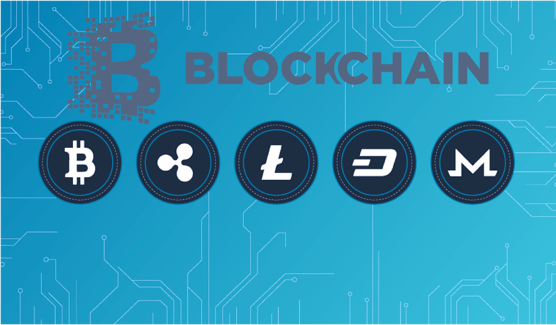Blockchain and even cryptocurrency are words that are often used interchangeably. Although they are two separate innovations, they are both inextricably related to one another. Blockchain, in its most complex form, is a digitalized, transparent, shared ledger. It is simply a digital information collection, or indeed blocks, contained in a shared archive or the chain. As verifiable transactions arise, the evidence is processed in chains, and the blockchain extends in scale. Since cryptocurrency is indeed a decentralized, digital framework, it functions through the blockchain. It is defined as a virtual or digital currency that employs protective cryptography and does not belong to any central authority and is therefore immune to controls. Start trading today with Push Money application as it is the most recommended application by most traders.
What’s the Connection Between Blockchain Technology with Cryptocurrency?
Blockchain is not an optional technology for cryptocurrencies but rather a required function. Finally, blockchain & cryptocurrencies are connected by their popular origins. However, they are not of the same caliber; blockchain outperforms cryptocurrencies when pitted against one another. Blockchain is not exclusive to the finance sector; it provides various technologies that are expected to affect a variety of industries in the coming years. Perhaps the first blockchain was the ledger in which any bitcoin transaction was processed. The words have become interchangeable. Blockchain was not recognized as such when it first appeared in 2009. It got its name from how transactions were organized into blocks of data and then chained together using a mathematical function that generates a hash code. The design existed before Bitcoin’s emergence. Still, it was the innovative and only blockchain that catapulted the framework to popularity.
Three Innovative Blockchain Applications
You don’t have to go hard to find examples of how blockchain technology is being used in novel ways. Healthcare, politics, voting, real estate, legislatures, and education are all seeking uses for the decentralized database’s efficient, safe method of storing, checking, and encrypting data. Here are three further blockchain implementations, both of which are highlighted by cryptocurrencies:
- Finance
The financial industry was founded around the need to move the capital from one individual to another. It meant the money was exchanged securely. By decentralizing transfers, blockchain is essentially replacing these intermediaries. A decentralized market provides buyers and sellers with transaction protection by reducing the risk of cyber-attacks and promoting transparency between parties. Bitcoin is a prime example of this because, once used on a larger scale, it has the ability to automate millions of financial transactions every day.
- Smart Contracts
Smart contracts are self-executing algorithms that use technology to support the deal’s terms between the seller and buyer. This agreement and code are part of a distributed, open blockchain network, making transactions traceable, clear, and immutable. This method of automation will dramatically improve efficiency, thus lowering business costs. Simply put, it allows you to trade land, securities, currency, or something else of value in a conflict-free and straightforward way, thus avoiding the cost of a middleman.
- Improved Cybersecurity
Blockchain messages are exchanged and executed using sophisticated cryptographic methods to ensure the knowledge comes from the correct source. This technology reduces the likelihood of hackers intercepting confidential information, resulting in more reliable data security.
The Cryptocurrency and Blockchain Future
The global blockchain industry is projected to hit $11.7 billion by 2022. Blockchain and cryptocurrency are creating disturbances well outside the financial services market. In contrast, blockchain companies and conventional organizations gradually capture the traction this technology offers. It’s tempting to get caught up in the excitement, but the rate of technological evolution shows no signs of slowing. Despite all of the chatter about the bubble popping, some people nevertheless believe that blockchain-based currencies are a decent long-term bet.
As blockchain’s usefulness increases, so will knowledge of its applications and advantages, and blockchain would become less and less correlated with its previous cryptocurrency partner, Bitcoin, over time. Blockchain and cryptocurrency have been at the center of disruption in many sectors. According to MIT Technology Review, cryptocurrency values have fallen by more than 90% since 2017. However, they believe that the technology behind this, blockchain, is far from over. In reality, the continued normalization of this technology indicates that it could be our future.
See Also:




